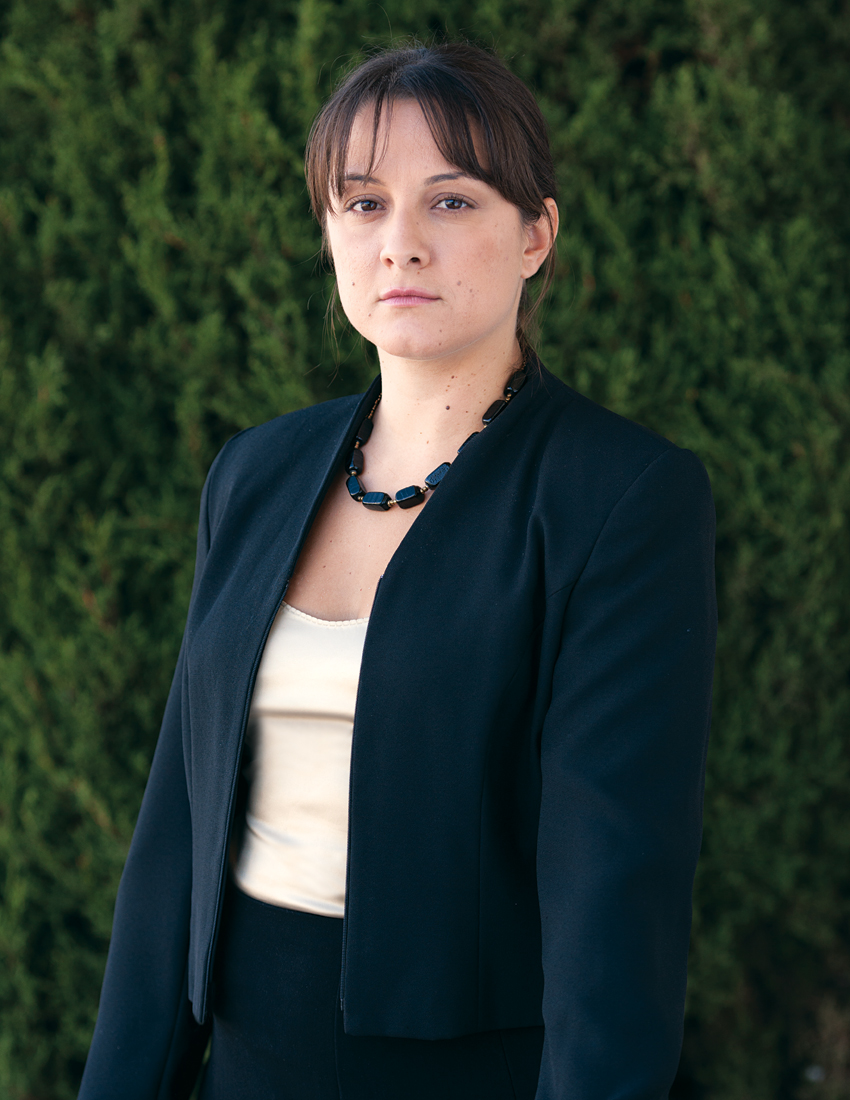Base Boston: Rape and Sexual Assault in the Coast Guard

The Coast Guard determined that E-3 seaman Panayiota Bertzikis wasn’t cut out for the “stresses” of life in the service. She sums it up more bluntly: “I was told I was having problems adjusting to being raped.” (Photograph by Minesh Bacrania)
The Coast Guard Academy responded to these numbers by hiring a new sexual-assault response coordinator in February, and unveiled a new training program shortly thereafter. But when the academy’s superintendent, Rear Admiral Sandra Stosz, spoke about the new program in March, she did little to alleviate the concerns of observers. “At a time when they’re exploring their identity, it’s somewhat natural to have people experiment with what it takes to attract a person of the opposite sex,” Stosz told The Day, New London’s daily newspaper. “If, one time, a guy or gal is clumsy or stupid and tries to touch someone and they’re repulsed, they learn. Someone who goes around and keeps trying many times, that’s a different kind of behavior than someone who is awkward and experimenting.” Her remarks reflect “the pure ignorance of the dynamics of sexual violence,” Stacy Malone, the executive director of the Victim Rights Law Center, in Boston, says. “She’s basically saying sexual assault is a miscommunication. And we know it’s not. Sexual assault is not about sex, it’s about power.”
According to Elsa Nethercot, who retired from the Guard as a first-class boatswain’s mate in 2007 after more than 20 years in the service, sexual harassment and assault have been endemic to the Coast Guard for decades. Back then, she says, they were “a condition of your continued employment.”
Nethercot says it’s unsettling to see these same problems playing out now. “These young women at small boat stations or ships, they’re getting raped by senior personnel and told to suck it up or deal with it, or they’re going to get booted,” she says. “It’s a corporate mentality. The Coast Guard will almost always support the person in whom they have the biggest financial investment.”
Mary Kelley Richard, who was among the first active-duty women to serve in the Guard, in 1974, and who later became an advocate with the National Women’s Veterans conference, says harassment was an “everyday fact of life” at her first two duty stations. “I just knew mine was coming,” she says. “I just didn’t know where it was coming from.” Seven months into her career, she was raped by a superior officer. “We had the same issues then that we have today,” Richard says. “It’s very disappointing to me to see that there has not been any significant progress.”
Panayiota Bertzikis is slight, with light-brown hair and delicate features. Her voice carries the hint of a New York accent; growing up, she spent summers boating on Long Island Sound. Those summers played a part in her decision to join the Coast Guard in 2005, at the age of 23. “I liked the job description,” she recalls. “The adventure, being out on the boat. I wanted to be a marine-science technician, cleaning up oil spills.”
Bertzikis wound up stationed in Burlington, Vermont. One afternoon in May 2006, she set off on a hike with her company when, she says, one of her shipmates pulled her aside, threw her to the ground, punched her in the face, and then raped her. Bertzikis reported the assault shortly after the attack, but she says that her commanders ordered her to “shut up,” and warned her that her accusation amounted to slander against her attacker. When she wouldn’t let it go, she says she was locked in a janitor’s closet during the investigation. Bertzikis says that when the investigation went nowhere, she was forced to live alongside her attacker, and the two of them were told to “work out their differences.”
Eventually, she was reassigned to Maine. There, she was given a performance evaluation and found competent by her new commander, who said he would try to move her back to Burlington. “I just started crying, and broke down,” Bertzikis says. The commander helped her open a new investigation. “He told me, ‘We’re going to send you to Boston. There are going to be people there that are going to help,’” Bertzikis says. “I felt like, ‘Finally they’re going to take care of this.’”
In July, Bertzikis was transferred to Base Boston. She arrived on a Friday and spent the weekend alone in the barracks. On Monday, her new shipmates returned from a weekend away. They already knew about her. “You’re trying to get him in trouble,” they said of her rapist. “He told us you were crazy.” For the next several months, she says she was shunned by the bulk of her shipmates. Those who did speak to her often harassed and threatened her, she says. One day, she says, a group of her shipmates surrounded her while she was walking back to her barracks during a lunch break. She says they started groping her and ripping her clothing. “You’re hot,” one said. “I’d like to rape you, too.” She reported the harassment, she says, but nothing happened. Instead, she says, her victim advocate—the person assigned to help her get assistance for the rape—encouraged her to remain silent.
Still, she continued to believe that eventually her investigation would validate her claims, that her rapist would be punished, and that she would move on with her career and up through the ranks. But in 2007, a Coast Guard psychiatrist diagnosed Bertzikis with an adjustment disorder. Deemed unfit to serve, she was given an administrative discharge. According to the Department of Defense, more than 93 percent of all rape cases in the military end without a conviction. Military doctors often diagnose rape victims like Bertzikis with personality or adjustment disorders after they report attacks. The military then considers them unfit to serve, and discharges them. Meanwhile, their accused attackers often continue with their careers.


